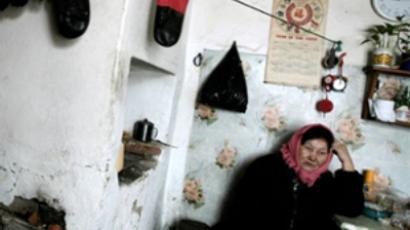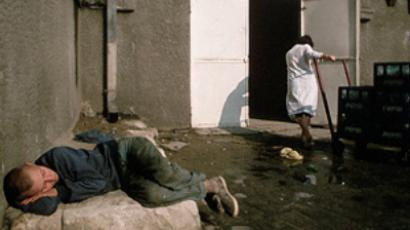Steel makers starve to protest and to survive
Workers at a metal production factory in the Russian city of Zlatoust in the Urals have found themselves starving after their salaries were slashed by two-thirds, and their hunger strike has had little effect.
Viktor and his wife say their situation is among the worst as both of them work at the factory:
“Nobody cares about us. Even after we went on hunger strike our salaries remained as low as ever,” complains Viktor Moskvin, a steel maker.
The reduced working hours and salaries have hit the pockets of thousands of local workers.
The factory’s top manager, Sergey Khomyanin, says they made the cuts because the factory is producing six times less steel than six months ago. He claims they made the move in order to avoid mass layoffs.
“What the workers did on that hunger strike was rather like blackmail. They’re actually free to choose whether they want to work under the new conditions or quit,” Khomyanin said.
Viktor, who is also a father of two, says he can’t quit, as making steel is all he can do. His father was the same, and his grandfather also worked at the same factory. However, it's not the profession he wants for his son.
“There was a time when the profession of steelmaker was something to be proud of in this country. Now I’m often embarrassed to tell people what I do,” Viktor says.
Most of the metal workers now receive less than $200 a month. Almost half of it goes towards paying household bills. To survive on the remaining one hundred is possible only if you eat just bread and potatoes. What makes the situation worse are the loans many people took from banks.
“Several months ago I felt confident with the loans I took from the bank, I could save something. Now I have nothing to save,” Viktor Moskvin continues.
The factory’s management says the workers might not see any salary increase for years. Some city officials claim the crisis could get even worse, as the company is nearing bankruptcy.
“Bankruptcy is probably what the owners want now,” believes Zlatoust mayor advisor Sergey Kostromin. “The debts of the factory now exceed its worth.”
Now the workers are taking legal action for greater compensation for the downtime they are facing. Its outcome depends on whether or not the court decides if the crisis at the factory is the employer’s fault.














